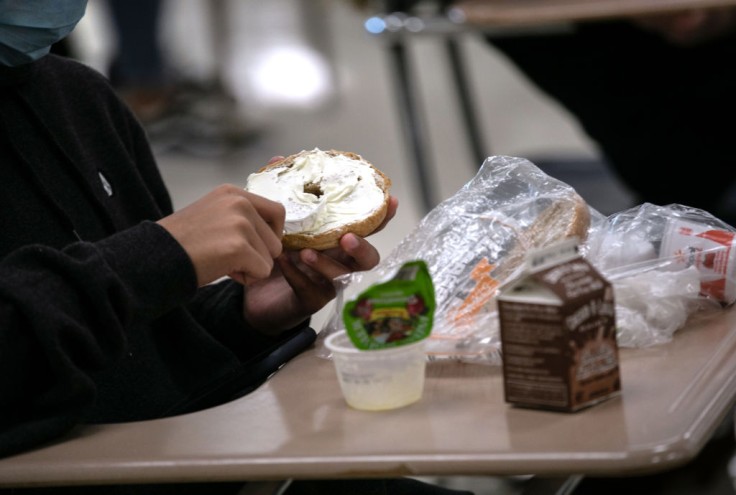
The chocolate milk drinks in school meals are in danger from the feds?
The US Department of Agriculture (USDA) came out with a proposal last February to make school meals healthier by limiting the amount of sodium and added sugar in students' breakfasts and lunches.
The Food and Nutrition Service (FNS) created a "gradual, multi-year approach" to implement a few important updates to the nutrition standards supporting healthy kids with the following specifics:
- Limiting added sugars in certain high-sugar products, which is later to be implemented across the weekly menu;
- Allowing flavored milk in certain circumstances, with reasonable limits on added sugars;
- Incrementally reducing weekly sodium limits over the next school years;
- Prioritizing products that are primarily whole grain, with the option for occasional non-whole grain products.
The agency provides reimbursements for a portion of almost every meal public schools serve, giving them a say over what food and what not to offer students.
The proposal was not well-received by school cooks and administrators as well as parents and students, triggering a heap of complaints and several angry comments, which stated that the USDA is "targeting" kids, pushing them to "go thirsty," and are simply being "mean."
Leave the chocolate out of this
One suggestion in the proposal that caused the heaviest criticism was that the agency might stop the reimbursement of chocolate milk served to elementary and middle school kids. It was explained that these products have more or less 20 grams of sugar per carton, almost half of which is added sugar. The American Heart Association only recommends 25 grams of added sugar consumption daily for kids.
Yet, school officials and parents would not have the explanation. One teacher from Green River, Wyoming, Michelle Wickstrom, stressed that the government should "leave the chocolate milk out of this." The group insists that children do not drink unflavored milk, which can eventually result in robbing the kids of necessary calcium and forcing them to go thirsty, Stat News reported.
Even the kids are joining in with the complaints.
Ben, a fourth grader, expressed that the feds were wasting both white milk and money and gave a threat saying that the chocolate milk should be back because the students are "super MAD." Another fourth grader, Delilah, warned that they are "getting dehydrated."
This is not the first time efforts to ban chocolate milk drinks in school have caused an uproar. Last year, New York Mayor Eric Adams quickly canceled the same plan after it created outrage from members of Congress and the press.
Fed's reimbursements are 'too low' to cover the expenses
School food officials, however, cannot deny that the proposal was well-intended. What angers them is that the proposal did not think through that without serious financial investment in the cooking staff that can prepare all these healthy and nutritious meals, it will be hard for schools to implement fully, not to mention the challenge of finding food items that meet the current standards.
According to USA Today, a survey showed that 93 percent of schools are short on staff and are "struggling" to run the cafeteria, while 89 percent have difficulty finding food items with less added sugar and salt, like whole grain foods.
Another concern would be the additional amount to the current prices of school meals, which most parents are paying. With the standard food items that are much more expensive than their current ones, families will need to pay higher for their children's school meals, and as of now, these families are already struggling financially.
In a recent School Nutrition Association (SNA) survey, it stated that reimbursements from the federal government were "too low" to cover the cost of the meals that met the standard nutrition requirements.
Further, a recent study from Tufts University revealed that the nutritional quality of school lunches improved after the 2010 law, making school meals often the "healthiest" meal children eat.
"Most people don't know how healthy school meals are. When we've got data saying that kids are eating their healthiest meals at school, our focus should be on making sure kids continue to eat their healthiest meals at school - and on bringing the rest of society up to those standards," proclaimed Diane Pratt-Heavner from SNA.
Related article: Vegan Fridays: NYC Public Schools Will Have Plant-based School Lunches Every Friday